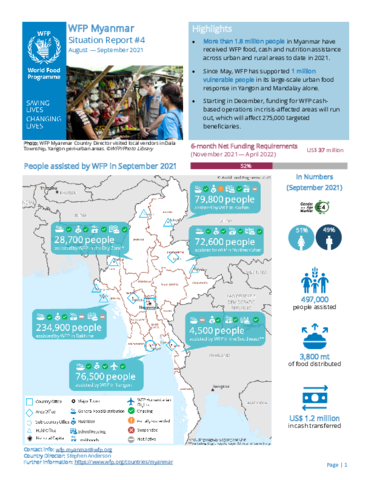
The growing insecurity and a deteriorating economy in Myanmar are likely to further worsen food insecurity among the vulnerable households reeling from a deadly third wave of COVID-19 between June and August.
While humanitarian needs continue to increase, particularly in the northwest, access to conflict-affected populations remains largely constrained by the prevailing security situation and lengthy administrative processes. Furthermore, recurrent banking challenges continue to impact WFP’s timely delivery of cash assistance and procurement processes.
In September, WFP assisted 497,000 people in Myanmar with a total of 3,800 mt of food commodities and US$1.2 million in cash-based transfers (CBT).
Since May, WFP has supported 1 million vulnerable people in its large-scale urban food response in Yangon and Mandalay alone.
WFP is ramping up its remote monitoring efforts in nine states and regions to better understand the food security and nutrition situation. Findings will inform WFP’s targeting and prioritization of assistance in 2022.
